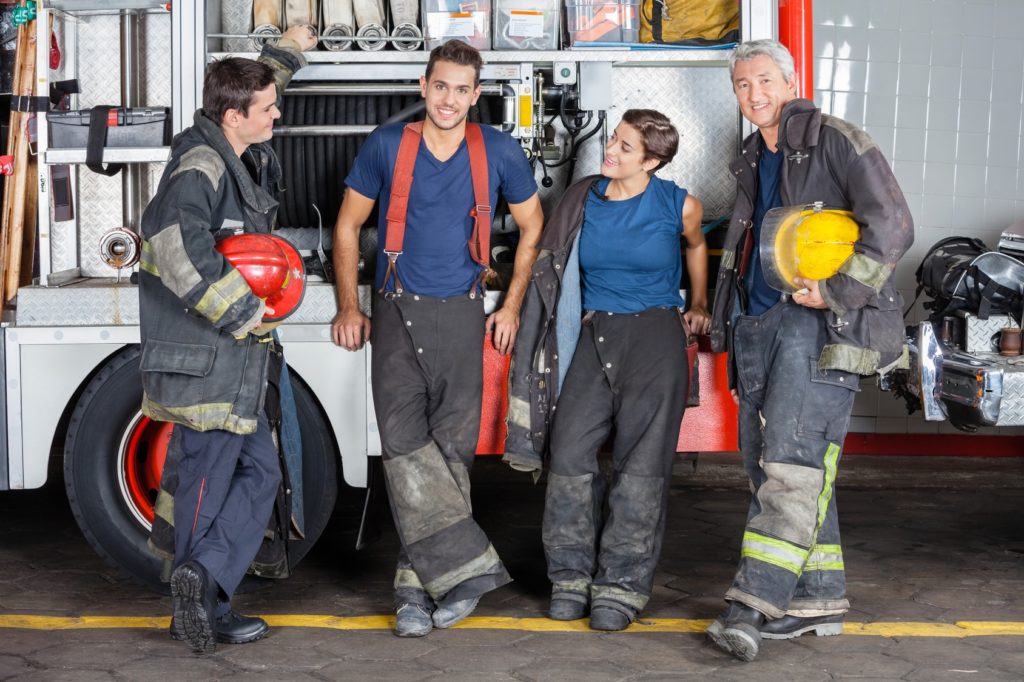
Firefighters: Higher Risk of Venous Insufficiency and Vascular Disease
One might think that the biggest cause of injury among American firefighters would be burns and collapsing structures. However, more than just skin and bones, it is the firefighter’s vascular system that is at risk.
There are a number of reasons why firefighters are especially susceptible to vascular injury, and why they in particular need to consult with a qualified vein specialist for diagnosis and treatment of all dysfunctions that affect the heart and blood vessels, including Chronic Venous Insufficiency (CVI) and varicose veins.
Firefighters are Pushed to the Limit
The schedule of a firefighter is highly unpredictable. Shift work, itself, is disruptive to sleep and eating schedules, and can lead to generalized fatigue and difficult digestion. Unless an individual is motivated, the sometimes long periods of relative inactivity between fire calls can lead to weight gain and decreased levels of fitness; the incidence of overweight and obesity among firefighters is high. And adrenaline-drenched episodes of fire fighting push firefighters to the limit, physically, psychologically and emotionally. Working in the blistering heat, in heavy protective gear, hauling heavy equipment over long distances causes firefighters’ bodies to overheat and dehydrate, their blood vessels to dilate and become less efficient, and their blood more likely to coagulate easily.
Chronic Venous Insufficiency is Common among Firefighters
All of these are factors in the development of cardiovascular disease, including sudden cardiac events. Even more common among firefighters, though, is the development of Chronic Venous Insufficiency. While CVI is not likely to be fatal, it will adversely affect quality of life, and one’s ability to perform firefighting duties. Among other CVI symptoms, sufferers will note that their legs feel heavy, achy, itchy, and tired. Left untreated,Chronic Venous Insufficiency can progress, leading to swelling in the legs, feet and ankles, leg ulcers that don’t heal easily, and Deep Vein Thrombosis (DVT).
The good news is that there is help. If you are experiencing any of the symptoms of CVI, consider consulting a qualified vein specialist as soon as possible.
Using thorough examination techniques and duplex ultrasonography, a qualified vein specialist will be able to assess and recommend a treatment plan tailored to your needs. And there are minimally invasive techniques available that can help optimize your vascular health, with minimal discomfort, and in very little time have you back up and saving the world again, one burning building at a time.
Congratulations, you are pregnant! Your bundle or bundles of joy are on the way to change your life forever! The body changes quickly during pregnancy, and some of these changes are not so wonderful! Varicose veins are a common occurrence in pregnancy. There are a number of reasons for this: blood volume increases, hormones shift,…
Read More- « Previous
- 1
- …
- 13
- 14
- 15

